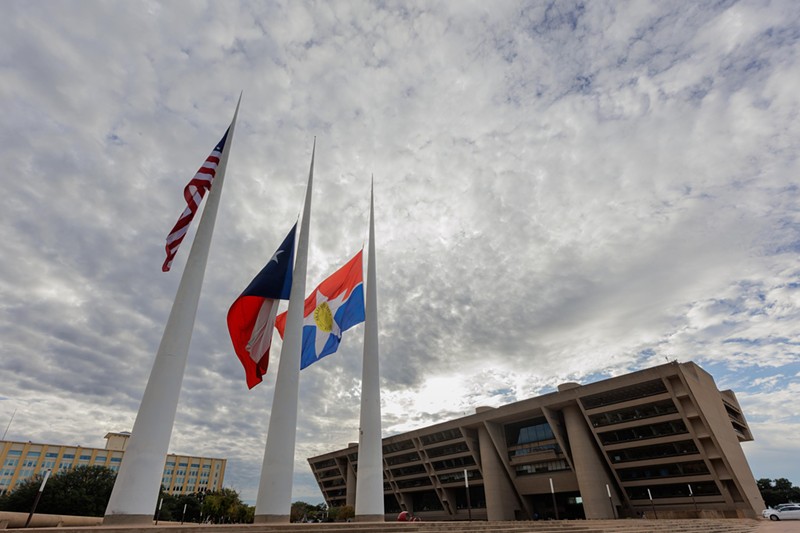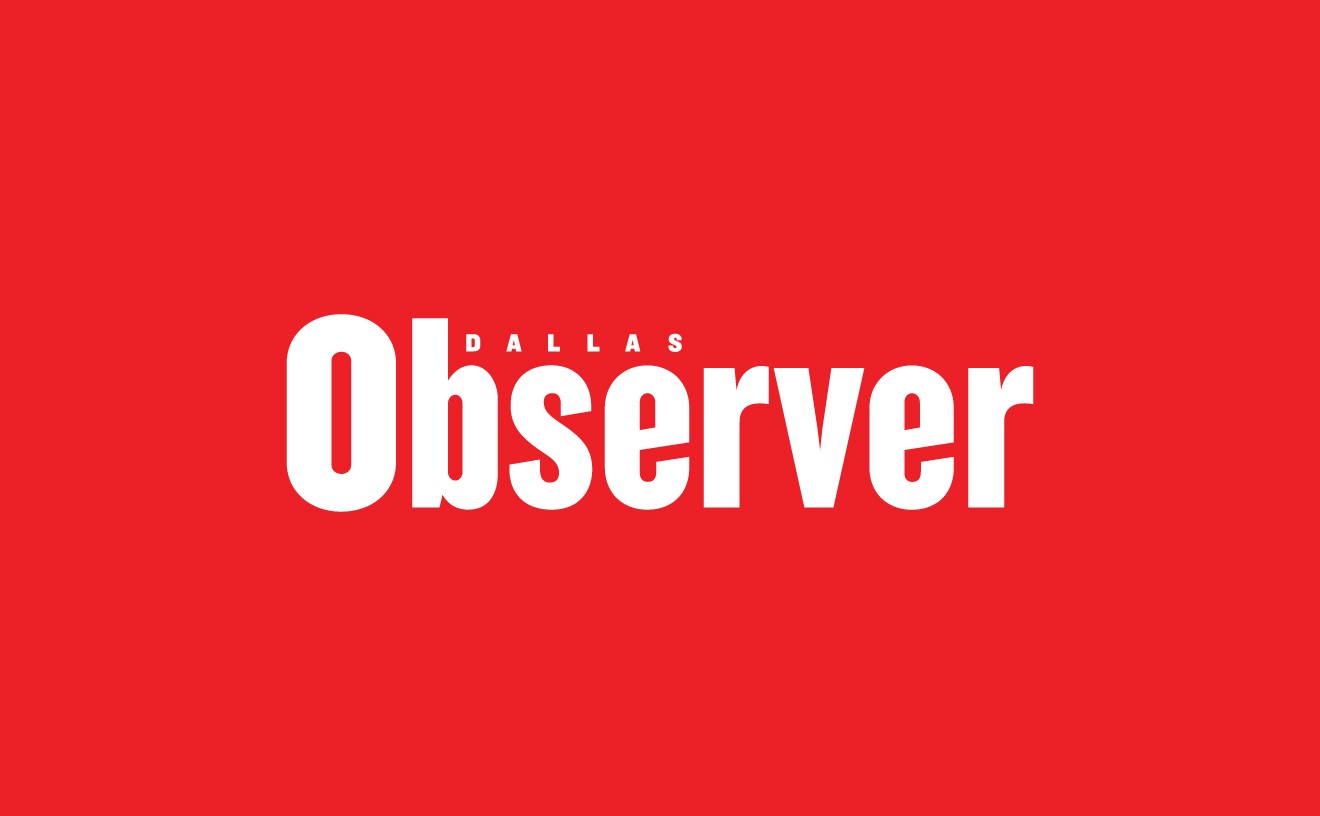The city charter essentially determines how Dallas is run and is reviewed every 10 years. It determines issues like the size of City Council and when elections are held. All of these amendments have to go through a 15-member Charter Review Commission before being considered by the City Council. From there, the changes are voted on by residents.
Residents had until Jan. 19 to submit proposed amendments. However, Dallasites can still propose charter amendments if they get enough signatures on a petition. That's why an organization called Ground Game Texas is collecting signatures to amend Dallas' charter to decriminalize low-level marijuana possession.
Former Dallas City Council member Philip Kingston said the charter is essentially the city’s constitution. “Just like a constitution, it can only be changed in very limited ways and in our case it takes a vote of the public,” he said. “There’s definitely some outdated stuff in there.”
He said the one genius thing that it does is require a review every 10 years. “That review could result in no changes, but it never really does,” Kingston said. “[The charter review process] allows everybody to kind of take a look at what works and what doesn’t work and see if they can develop proposals to improve the document with the goal of improving the governance of the city.”
He said he participated in the process in 2014 when he was a City Council member, but he hadn’t been in the position for very long. At that time, he said, “I had not seen the myriad ways that the charter is letting us down.” Now, he does.
Kingston submitted several amendments for consideration. In one, he suggests that council terms be four years not staggered, instead of two years staggered. He said the two-year term creates an environment where council members are too timid. He also said staggering these elections hurts voter turnout.
The two-term council limits are problematic, he said, because council members will spend about a quarter of their term campaigning for their next one. “A four-year term allows a council member to be a little bit more bold in terms of building public support for an idea that might not be initially that popular,” Kingston said. “A lot of what you have to do as a legislator is to educate voters about why changes are important, and if you just have two years to get some stuff done, you’re going to have a lot less time to explain things to people and to get their buy in, and you’re going to be worried the entire time how it’s going to affect your upcoming election.”"There’s definitely some outdated stuff in there.” – Philip Kingston, former City Council member
tweet this
On not staggering elections, Kingston said: “Elections work better the more resources that are put into them. So, having everybody run at the same time and having all 15 places be up for grabs every single time means that there’s going to be the maximum amount of spending on the election every time and the maximum amount of resources in terms of volunteer efforts and all the other things. Those things work together to drive turnout.”
Others have suggested giving council members three-year terms and staggering their elections to extend representation and reduce elections by one cycle.
Kingston is also recommending that the council be expanded from 15 members to 21. He said this would take district populations back to almost exactly what they were when the 15-member council system was enacted. It also makes it easier to draw diverse districts and gives more power to the people, he said.
He also proposes that City Council members be paid $125,000 a year, with their pay indexed to inflation, and city plan commissioners $25,000 a year.
Council members are now paid about $60,000 a year and city plan commissioners are unpaid. Increasing pay for these positions will expand the kinds of people that can hold them. For example, a lower-income resident might not be able to afford to do all of the work of a city plan commissioner for free. “If the goal is to pay enough to get excellent candidates, then you just have to pay enough,” he said.
Another proposed amendment from Kingston would do away with council officer positions like Mayor Pro Tem and Deputy Mayor Pro Tem. He says they’ve essentially been powerless since 2014. “They currently serve only one purpose, to create strife and hurt feelings among council members at the start of a term because they tend to get into disagreements over who should have the pointless, powerless council officer positions,” Kingston said.
David de la Fuente, charter review commissioner for Dallas’ District 1, has proposed two amendments. For one, he’s suggesting Dallas move away from a runoff voting system to a ranked choice voting system once it’s allowed by state law. Ranked choice voting allows voters to rank candidates in the order of their preference, instead of having to turn out for a runoff election.
“Ranked choice voting means that folks only need to show up once as opposed to showing up twice to the polls,” de la Fuente noted. “It also saves the city a ton of money.” He said a city-wide election, such as for mayor, costs the city about $1 million to conduct. “You’re paying $1 million to be inconvenienced, essentially under the status quo,” de la Fuente added.
He also wants to move elections from May during odd-numbered years to November of odd-numbered years. “There’s a lot of academic research around voter fatigue and consolidation being a solution for that,” de la Fuente said. The goal is to increase voter turnout. For example, the city of Mesquite made this change in 2019 and it has consistently seen double the voter turnout, he said.
"You’re paying $1 million to be inconvenienced, essentially under the status quo.” – David de la Fuente, Charter Review Commission
tweet this
Jim McDade, former president of the Dallas Fire Fighters Association, has recommended codifying Dallas Fire-Rescue staffing levels in the city’s charter to better response times.
Another Dallas resident named Philip Goss has some interesting ideas for the charter as well. For one, he wants to remove the section that requires bicyclists to wear helmets in the city because, he said, it is not uniformly enforced and is used to harass people. He also wants to change the zoning code to allow for three housing units on all single-family properties and reduce minimum lot sizes from 5,750 square feet to 2,500 square feet. The city needs more housing, Goss said, and the current code doesn’t allow for the density the city needs. “If we keep the current policy in place, homelessness will continue unabated and housing affordability will continue to worsen,” Goss told the Charter Review Commission.
Some want the mayor and City Council to have more power, recommending that Dallas do away with its city manager position. “The city manager position must be eliminated,” resident Eugene J. Robinson told the Charter Review Commission. “It produces nothing of benefit and is a hindrance to the operation of the city.”
Former City Council member Adam McGough would like to see the mayor have veto power in three areas: the budget, bond propositions and department-level direct hires, such as the fire chief or chief of police. As of now, the city manager hires those positions. The City Council could override a mayor’s decision with a 2/3 vote under McGough’s proposed amendment. “By creating a step of accountability in three very limited areas, collaboration is encouraged and rightly placed on the only city-wide elected official,” McGough told the Charter Review Commission.
Former City Council member Angela Hunt wants to make it easier for residents to petition the City Council. She’d like the time a petitioner has to collect signatures to be extended from 60 to 120 days. “It is nearly impossible for a grassroots group to collect the required number of petition signatures within 60 days,” Hunt said to the Charter Review Commission. “This unrealistic time constraint deprives the public of the only means of proposing legislation outside of the City Council process,” added Hunt.
There are plenty more charter amendments being considered, and they can all be viewed here. The Charter Review Commission will be working over the next couple of months to come up with a final list of amendments to submit to voters during the November elections.












